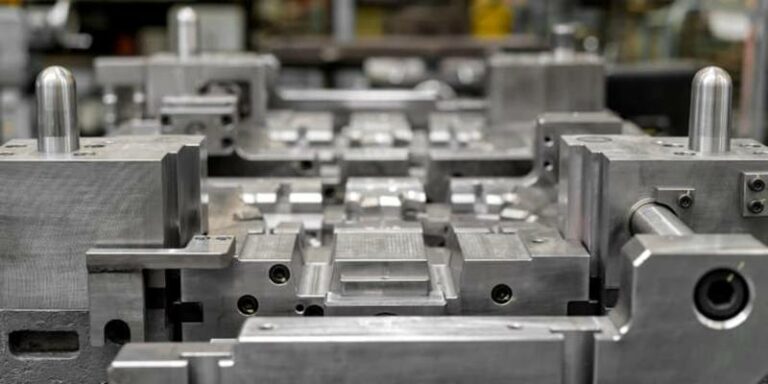The smart Trick of Alcast Company That Nobody is Discussing
Table of ContentsWhat Does Alcast Company Do?4 Easy Facts About Alcast Company DescribedFascination About Alcast Company5 Easy Facts About Alcast Company ExplainedThe 3-Minute Rule for Alcast CompanyThe smart Trick of Alcast Company That Nobody is Discussing
Chemical Contrast of Cast Aluminum Alloys Silicon promotes castability by lowering the alloy's melting temperature and enhancing fluidity throughout spreading. In addition, silicon adds to the alloy's strength and put on resistance, making it useful in applications where resilience is important, such as auto components and engine components.It also improves the machinability of the alloy, making it much easier to process right into completed products. In this way, iron contributes to the overall workability of aluminum alloys.
Manganese contributes to the stamina of aluminum alloys and enhances workability (Casting Foundry). It is commonly utilized in wrought aluminum products like sheets, extrusions, and accounts. The visibility of manganese help in the alloy's formability and resistance to splitting during manufacture procedures. Magnesium is a lightweight aspect that provides stamina and influence resistance to light weight aluminum alloys.
See This Report about Alcast Company
It permits the manufacturing of lightweight elements with outstanding mechanical properties. Zinc improves the castability of aluminum alloys and aids manage the solidification process throughout spreading. It boosts the alloy's toughness and solidity. It is typically found in applications where elaborate forms and great information are required, such as ornamental spreadings and particular automotive parts.

The primary thermal conductivity, tensile stamina, return toughness, and elongation vary. Amongst the above alloys, A356 has the greatest thermal conductivity, and A380 and ADC12 have the most affordable.
Alcast Company - An Overview

In accuracy casting, 6063 is appropriate for applications where intricate geometries and high-quality surface finishes are vital. Examples include telecommunication enclosures, where the alloy's premium formability enables smooth and aesthetically pleasing designs while preserving architectural honesty. Similarly, in the Lighting Solutions industry, precision-cast 6063 parts develop elegant and efficient illumination fixtures that require complex forms and great thermal performance.
It leads to a finer surface area finish and better rust resistance in A360. In addition, the A360 shows remarkable elongation, making it optimal for complicated and thin-walled components. In precision spreading applications, A360 is fit for industries such as Consumer Electronics, Telecommunication, and Power Devices. Its boosted fluidness enables intricate, high-precision elements like mobile phone coverings and interaction tool housings.
The 6-Second Trick For Alcast Company
Its distinct residential properties make A360 a beneficial selection for precision casting in these industries, improving product longevity and quality. aluminum casting manufacturer. Light weight aluminum alloy 380, or A380, is a widely made use of casting alloy with several distinctive attributes.
In accuracy casting, light weight aluminum 413 beams in the Customer Electronic Devices and Power Devices industries. This alloy's superior rust resistance makes it an exceptional choice for exterior applications, ensuring lasting, resilient items in the discussed markets.
The Basic Principles Of Alcast Company
As soon as you have actually determined that the light weight aluminum die casting process is suitable for your project, an my website important following step is choosing on the most proper alloy. The light weight aluminum alloy you choose will significantly affect both the spreading process and the residential or commercial properties of the final item. Due to this, you should make your choice meticulously and take an enlightened strategy.
Determining the most appropriate aluminum alloy for your application will certainly imply considering a vast range of attributes. The very first classification addresses alloy characteristics that affect the production process.
Alcast Company Fundamentals Explained
The alloy you select for die spreading directly influences numerous facets of the spreading process, like just how easy the alloy is to deal with and if it is vulnerable to casting flaws. Hot breaking, also called solidification fracturing, is a regular die spreading problem for light weight aluminum alloys that can cause inner or surface-level rips or cracks.
Specific aluminum alloys are more vulnerable to warm breaking than others, and your choice needs to consider this. Another common issue found in the die spreading of aluminum is die soldering, which is when the cast stays with the die walls and makes ejection challenging. It can harm both the actors and the die, so you should seek alloys with high anti-soldering homes.
Deterioration resistance, which is already a remarkable characteristic of light weight aluminum, can vary substantially from alloy to alloy and is a crucial particular to think about relying on the ecological conditions your product will be exposed to (aluminum foundry). Put on resistance is an additional property typically sought in light weight aluminum items and can separate some alloys